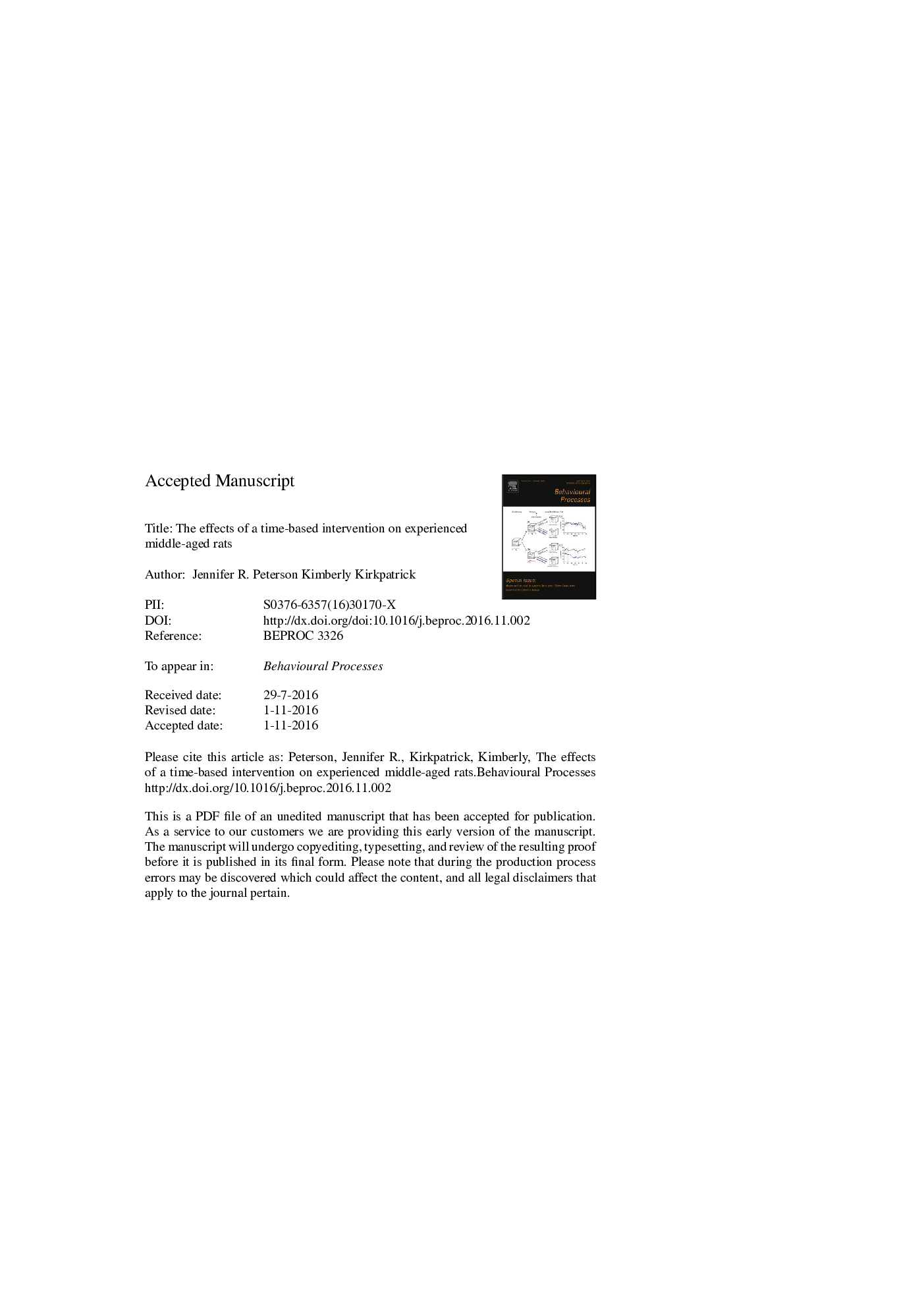| Article ID | Journal | Published Year | Pages | File Type |
|---|---|---|---|---|
| 5539758 | Behavioural Processes | 2016 | 30 Pages |
Abstract
Impulsive behavior is a common symptom in Attention Deficit Hyperactivity Disorder, schizophrenia, drug abuse, smoking, obesity and compulsive gambling. Stable levels of impulsive choice have been found in humans and rats and a recent study reported significant test-retest reliability of impulsive choice behavior after 1 and 5 months in rats. Time-based behavioral interventions have been successful in decreasing impulsive choices. These interventions led to improvements in the ability to time and respond more appropriately to adventitious choices. The current study examined the use of a time-based intervention in experienced, middle-aged rats. This intervention utilized a variable interval schedule previously found to be successful in improving timing and decreasing impulsive choice. This study found that the intervention led to a decrease in impulsive choices and there was a significant correlation between the improvement in self-control and post-intervention temporal precision in middle-aged rats. Although there were no overall group differences in bisection performance, individual differences were observed, suggesting an improvement in timing. This is an important contribution to the field because previous studies have utilized only young rats and because previous research indicates a decrease in general timing abilities with age.
Related Topics
Life Sciences
Agricultural and Biological Sciences
Animal Science and Zoology
Authors
Jennifer R. Peterson, Kimberly Kirkpatrick,
